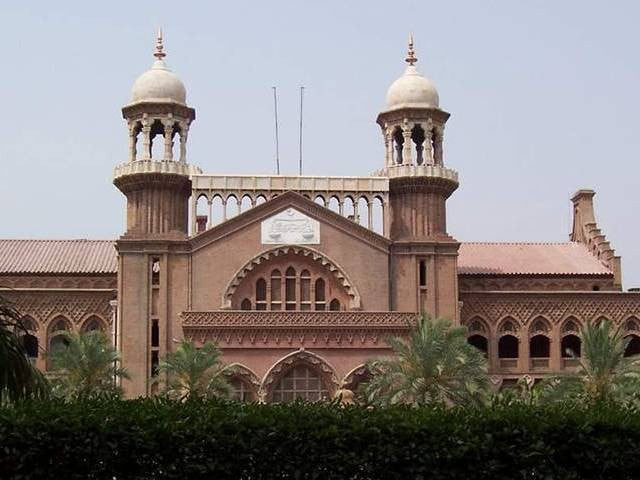PMO faces LHC gag order on judicial interference
Justice Karim issues SOPs to stop direct contact with judges

The Lahore High Court (LHC) has ordered the Prime Minister’s Office (PMO) to instruct all civil and military agencies, including the Intelligence Bureau and Inter-Services Intelligence (ISI), against contacting or approaching “any judge” or their staff members.
Justice Shahid Karim issued these directions in a written order—revealed on Saturday—based on a complaint filed by an anti-terrorism court (ATC) judge in Sargodha who reported harassment after allegedly refusing to meet officials from an intelligence agency.
Moreover, in a move to safeguard judicial independence, the LHC judge issued five standard operating procedures (SOPs) aimed at curbing interference in the judiciary.
The court stressed that the IG Punjab should also issue directives to subordinate officers to prevent interference in the judiciary. Any security measures for anti-terrorism courts must be carried out in consultation and with the agreement of the relevant judge.
Former LHC Chief Justice Malik Shahzad Ahmad Khan had taken suo motu notice of the judge’s complaint, filed with the registrar, and initiated proceedings. After his elevation to the Supreme Court, Justice Karim presided over the case.
At the previous hearing, Justice Karim noted that Prime Minister Shehbaz Sharif was responsible for the actions of intelligence agencies as they fell under his command.
In a written order dated June 27, Justice Karim stressed that it was “imperative” to address recurring issues that regularly come before the court, necessitating “directions to protect the independence of the judiciary.”
He ordered: “Instructions shall go out by the Prime Minister’s Office to all civil or military agencies including the Intelligence Bureau as well as Inter-Services Intelligence (ISI) regarding strict directions not to approach or contact any judge whether of the superior judiciary or sub-ordinate judiciary or any member of their staff in future.”
Similar directives were issued for the Punjab police. “Likewise, instructions shall be issued by the Inspector General of Police, Punjab to all police officers […] not to contact directly any judge of superior judiciary or the sub-ordinate judiciary regarding the merits of any pending judicial proceedings before these courts,” the order stated.
The order specified that security measures for ATCs across Punjab should be implemented “with the consultation and concurrence of the learned judge of that court and not otherwise,” warning that the inspector general and police chief would be “held personally responsible” and could face contempt proceedings if the order was violated.
Justice Karim also directed ATC judges across Punjab to install call-recording applications on their mobile phones. “[They] shall be bound to record all such calls which they receive and about which the learned judges have apprehension that they have been made to influence any judicial proceedings before them,” he stated.
“A direction is issued to the judges of ATCs across Punjab to deal and decide the cases relating to May 9, 2023, expeditiously and on priority,” the order added.
The court further instructed the Sargodha ATC judge and court staff to cooperate in the investigation. “All investigation proceedings should be video recorded and the record shall be maintained by the police as also remitted to this court through the registrar,” it stated.
The order concluded by adjourning the proceedings until July 8.
The complaint
The complaint from the Sargodha ATC judge concerned his first day in charge on June 7 when he was informed that “some authority of ISI” wanted to meet him in his chamber. The judge said he straightaway refused the request.
Since then, he detailed several harassment incidents targeting his family, including damage to the gas meter outside his official residence in Bahawalpur, where he was previously serving.
He also reported receiving an inflated electricity bill for the previous month, which he suspected was fake and possibly sent in connivance with the power utility company and intelligence agency members.
The judicial officer also reported that his relatives were “teased” by unknown men about his personal information.



















COMMENTS
Comments are moderated and generally will be posted if they are on-topic and not abusive.
For more information, please see our Comments FAQ